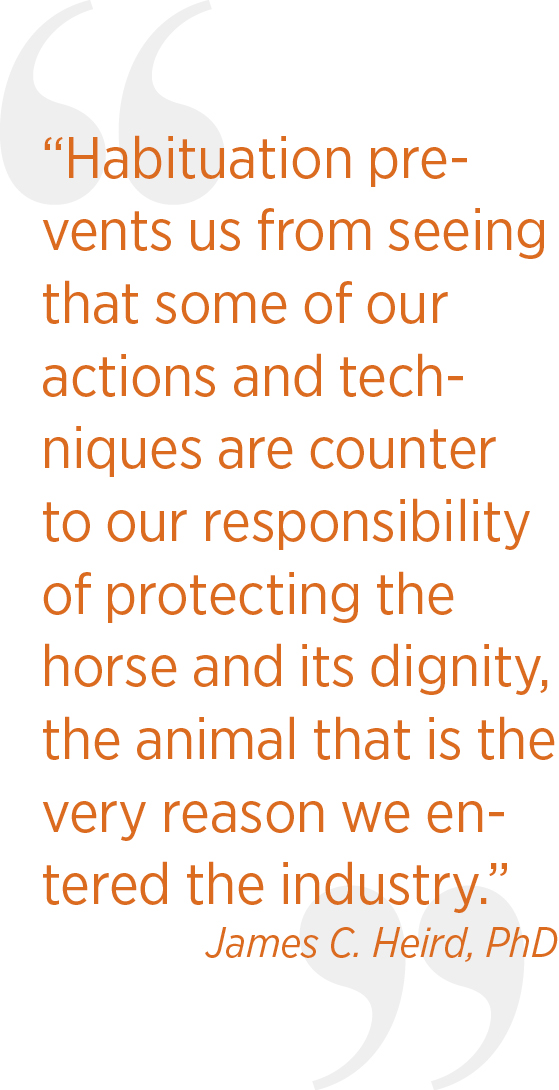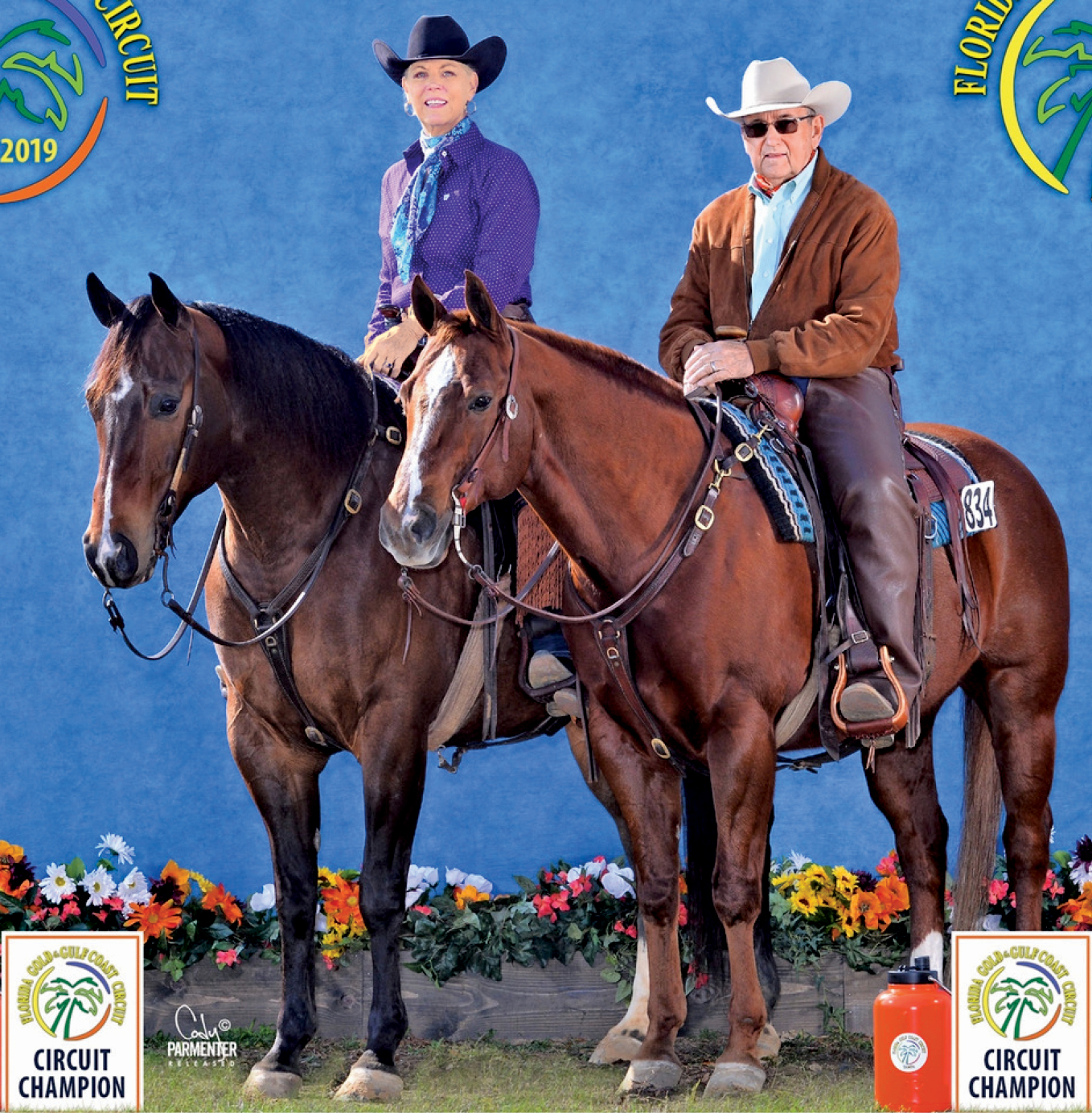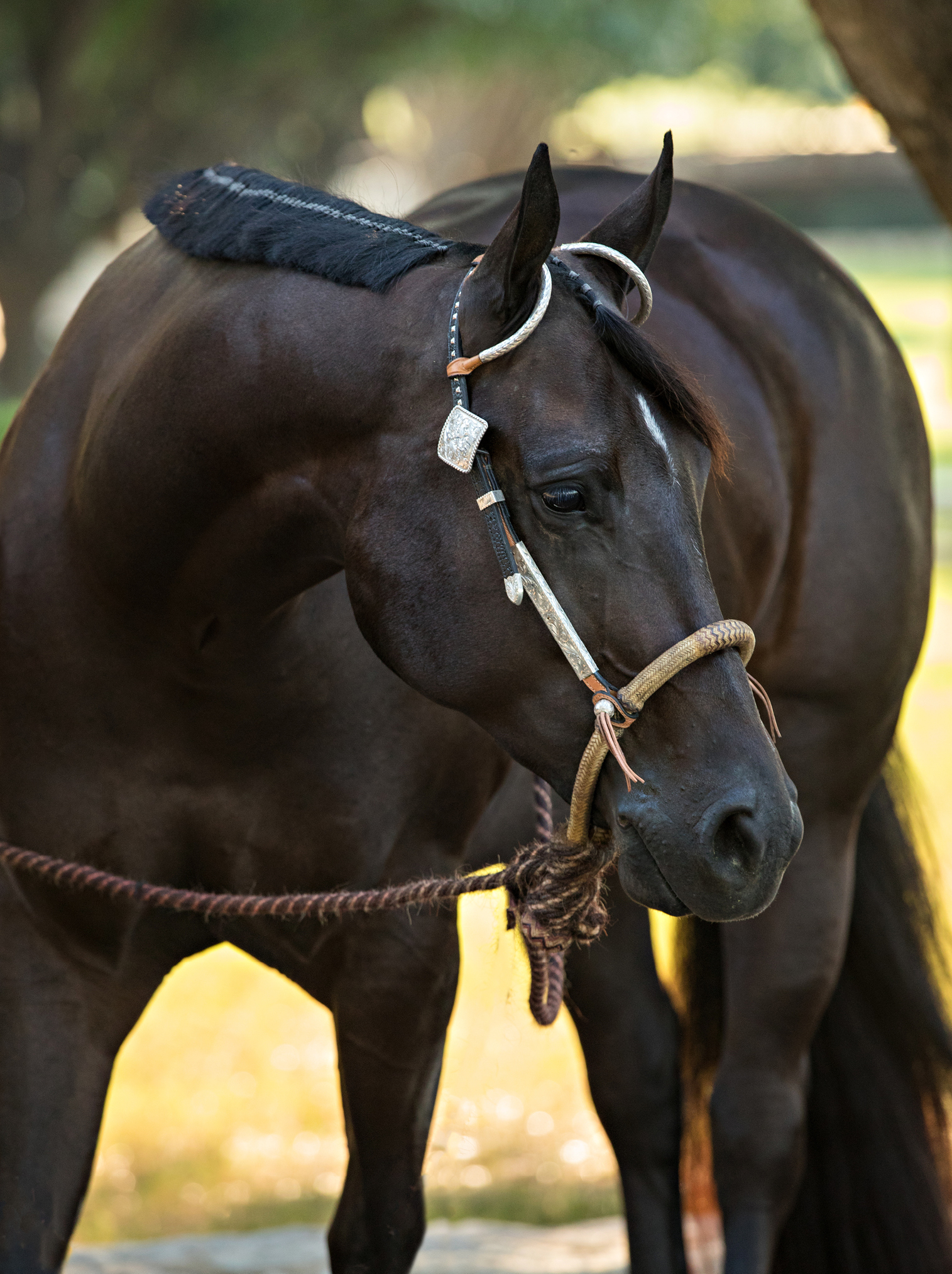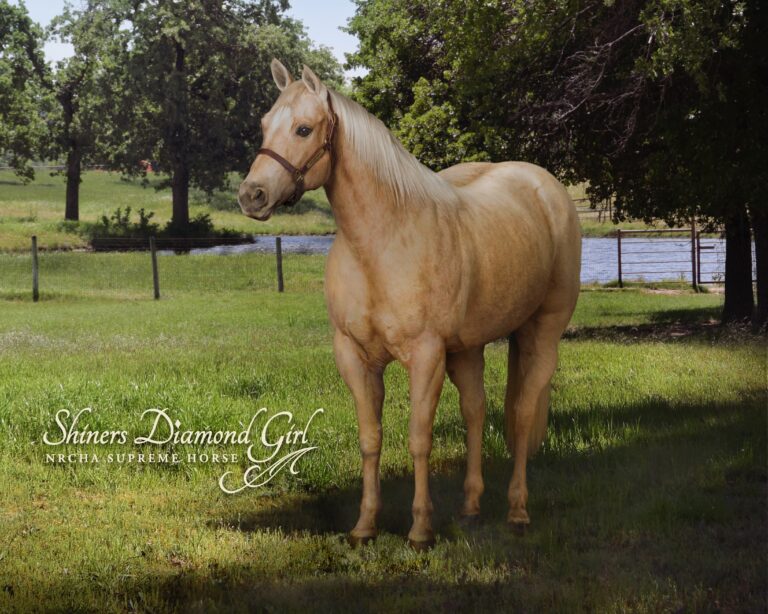“The American Quarter Horse has been good to each of us. Let’s make sure we are good to it in return.”

With that plea, James C. Heird, PhD, concluded his talk at the 2009 American Quarter Horse Association Judges Conference in Dallas, Texas. During the talk, titled “Do Right by the Horse,” he explained the concept of “habituation,” a phenomenon where we stop responding to something we’ve grown accustomed to.
“Habituation prevents us from seeing that some of our actions and techniques are counter to our responsibility of protecting the horse and its dignity, the animal that is the very reason we entered the industry.”
Heird went on to become the inaugural chair of the AQHA’s Animal Welfare Commission, formed in 2012 to protect and improve the welfare of Quarter Horses. Since that time, AQHA has made rule changes that prohibit abusive equipment and actions deemed inhumane to the horse; enforcement is accomplished through the observations of show stewards, judges, and show management.
[READ: MAKING AN IMPACT ON HORSE WELFARE]
Horse&Rider has previously reported on issues surrounding humane treatment for horses (see “Looking Back” box, below.) Here, we’ll talk with Dr. Heird for an update on AQHA’s efforts. Because the association typically leads the field in groundbreaking changes, its efforts have influenced other organizations in their horse welfare policies. In “The Progress so Far” on page 60, we’ll look at some of the specific changes and initiatives AQHA and other groups have launched to date.
Heird, an AQHA past president, longtime judge, and ongoing member of the Animal Welfare Commission, is also an executive professor and coordinator of the Equine Sciences Initiative at Texas A&M University.

H&R: From 2012 on, AQHA has made many rule and procedure changes to help insure the well-being of horses. What, in your opinion, have been the most noteworthy changes overall, in terms of an ongoing beneficial effect?
HEIRD: Without question the forming of the Animal Welfare Commission by our Executive Committee in 2012. There’s no way to describe the huge effect it’s had. It wasn’t too popular when it was first formed, but it’s been incredible how our industry has come around.
That commission—which is comprised of an amazing group of people, then and now—made all those rule changes. The thing is, the commission reports directly to the Executive Committee. It doesn’t need approval from the floor. That committee can then approve what we’ve come up with or send it back to us for more work. But overall the committee has been good about implementing the recommendations we make.
The second important thing, with probably just as much influence, was changing our mission statement to include a line that ensures horses are “treated humanely, with dignity, respect, and compassion, at all times.” Some of us believe that animal welfare is the biggest challenge we’re facing. Not just the welfare, but how we’re viewed by the general public. It’s one of most challenging issues our industry is dealing with.
[RELATED: LEARN ABOUT NON-COERCIVE HORSE TRAINING]
H&R: Self-regulation is always preferable to pressure from outside groups. Do you feel the direction the association in particular and the Western horse world in general is now taking is likely to ward off those outside challenges?
HEIRD: Well, there’s a difference between animal-welfare concerns, which are reasonable, and animal-rights concerns, which often are not. I fear the most extreme animal-rights groups will never be satisfied. PETA, for example, thinks you should never do anything with an animal.
That said, we do need to be sensitive to what the public thinks. When we see something the general public will object to, we mustn’t let habituation blind us. The public is definitely not habituated to it, so it may be a case where we need to step up and say, “Let’s do something different.”
I often quote my friend Dr. Bernie Rollin, a philosopher and professor at Colorado State University. He’s taken on the task of protecting the welfare of all animals. He says we “need to stop doing the 5% that society spends 95% of its time criticizing.” It just makes good sense.
______________________________________________
LOOKING BACK
Humane treatment for show horses is an evergreen concern here at Horse&Rider. Review our previous pieces:
• Horse Training? Or Abuse? (November 2004)
• Horse Abuse and Point-of-View Blindness (August 2011)
_____________________________________________
H&R: Future goals of the Animal Welfare Commission include the refinement of the role of stewards and providing more education. What are the plans?
HEIRD: We’re continually educating our judges and stewards. We have conference calls on a regular basis. And our show stewards have done a great job of educating our people. Some exhibitors call them policemen, but they’re really not. When they see something questionable going on, they might walk over and say, “You need to take a break here.” And if nothing happens, then they’re good about writing that ticket.
Our association at large does a great job promoting education, too. My wife, Eleanor [Eleanor Green, DVM, dean of the veterinary school at TAMU], gave a pertinent talk at the Professional Horseman’s Workshop at our annual convention in March, and she’ll also address our judges this fall.
The message we’re trying to get out is, we’re not here to “catch you,” per se; we’re here to protect our horse. It’s a team effort—our AQHA Journal, our committee members, and our staff overall care greatly about the welfare of the horse.
H&R: Enforcement is always challenging; are there ideas in the works to keep improving enforcement?
HEIRD: Our show stewards aren’t the only ones with enforcement authority; show management and our judges are active, as well. If they see something untoward in the warm-up pen or elsewhere, they can step in and say something.
As a result, our warm-up pens now look much better than they did 10 years ago. There’s a concern with what’s being done with the horses 24/7.
Another thing we don’t talk enough about, is that our highly respected AQHA Professional Horsemen are proactive now, as well. It’s not uncommon for one of them to walk up to a younger trainer and suggest they take a break, then talk with them about what they’re doing—both in terms of what’s best for the horse, and how it’s perceived by others.
They’ll ask, “Would you want what you just did videoed and put up on social media? Would you want to see it on the front page of the newspaper?”
Because we have to remember: Everybody has a camera now. And no one puts good stuff up on social media…it’s all gotcha videos. It’s important to remember that, and many of our pro horsemen have become very good at getting the younger trainers to think about things like this.
[READ: DON’T SABOTAGE YOUR HORSE’S TRAINING]
H&R: AQHA has been instrumental in promoting animal welfare and serves as a role model for other organizations. What advice would you offer to other groups as they continue to evolve their own rules, guidelines, and procedures?
HEIRD: Well, it takes courage to accomplish anything. I can tell you that. I was the first chair of the AWC, and it was not the most popular thing I’ve ever chaired, when we first started out in 2012. You have to be willing to stand up and, without attacking or embarrassing people, remind them what’s right for the horse and, also critically important, how things look to other people.
The association leadership overall must have courage, too. When we first started, our Executive Committee made a decision that AQHA is going to be the leader. They said, “Let’s form this commission and let’s go to work.”
So I’d say it’s doable, but it takes courage, both to get it started and to follow through with implementation, so that things actually change. You can’t have the approach of, “Let’s see what we can get by with.” Our approach has been, “Let’s stop doing anything that’s wrong or distasteful.”

H&R: And you’re talking about what’s viewed as “distasteful” to the general public, too?
HEIRD: Yes. We have to remember we’re now three or four generations away from an agrarian society. Farm and ranch families now comprise less than 2% of the U.S. population. Our young women today grew up watching movies like Spirit, Stallion of the Cimarron and brushing the purple manes on their My Little Pony. Their attitudes will reflect that anthropomorphized view of things, and we have to stay aware of that.
H&R: The expression “do right by the horse” is now being used in information discussing the AQHA Welfare Commission’s mission; you used that expression in your outstanding 2009 address to judges. Did the term originate with you, and is that how it found its way into use?
HEIRD: You know, I don’t remember. I think I was looking for a title. The first time I presented this talk was to our Judges’ Seminar, at the request of Alex Ross [then director of judges]. The AQHA Journal writers were there, and they asked if they could condense the talk into a shorter article. So that was done in the Journal, and picked up around the country. It says what we want to get said. It’s about our horse, our breed, our industry. If we don’t treat our horse right, the rest is academic from there on.
[READ: HOW FEAR SHORT-CIRCUITS YOUR HORSE’S TRAINING]
THE PROGRESS SO FAR
Here are some of the specific initiatives and measures of the AQHA and other participating organizations, all meant to help assure the humane treatment of show horses.
AQHA
The American Quarter Horse Association developed a fine and penalty system for abuse violations in 2012; has updated/added to the pertinent rules every year since.
Mission Statement now includes: “To ensure the American Quarter Horse is treated humanely, with dignity, respect and compassion, at all times.”
Position Statement now includes: “Above all, the American Quarter Horse’s welfare is paramount to other considerations, and the continual development of procedures that ensure humane treatment of the breed and of all other horses and all animals involved with AQHA events, and fair competition supersede all other concerns.”
AQHA’s definition of abuse, as approved by the Executive Committee, includes: “Any excessive and/or repetitive action to cause obvious distress or discomfort to a horse.”
AQHA’s rule book now details a number of violations that may result in “investigation, prosecution, suspension of privileges and/or fines.” Rules address a wide range of concerns, including: equipment (tie downs, nosebands, hackamores, draw reins, side reins, lip chains, bits, belly bands, etc.); tails (appliances, substances, or surgeries that alter normal function); camouflage (colorant, dye, glue, hair applied to a horse’s shoulder, belly, flank, or head); prohibited drugs and substances; and lameness and movement.
APHA
Dave Dellin, the American Paint Horse Association’s director of judges, shows, and education, said, “Our horses’ welfare is always a top concern,” adding that APHA’s overall approach is similar to AQHA’s.
APHA’s standard by which conduct or treatment will be measured is “that which a reasonable person, informed and experienced in generally accepted animal husbandry standards, equine training and exhibition procedures, would determine to be cruel, abusive, and inhumane.”
APHA’s rule book covers a wide range of concerns, including: causing undue discomfort or distress (equipment, tying methods, riding and training techniques); letting blood or otherwise causing bleeding; failure to maintain an appropriate environment for the horse’s comfort; tail restriction of any sort; exhibiting a horse that appears lethargic, emaciated, overly tired.
NCHA
Lindy Burch, chair of the National Cutting Horse Association’s Horse and Cattle Welfare Committee, said the NCHA “has always had a zero-tolerance rule—our policy on any kind of excessive training or what might be deemed abuse by an animal rights group or the public.”
Training devices are allowed in the practice pen but not in the show pen. Cameras and practice-pen monitors ensure rules are followed and watch for excessive or otherwise abusive training.
Within the last decade, Burch and Jerry Black, DVM, developed the NCHA’s medication policy and a testing/penalty system. “NCHA was among the first of the performance organizations to formulate a medication policy. We wanted to be proactive rather than reactive, and police ourselves,” Burch said.
Random drug testing takes place at shows.
NSBA
Stephanie Lynn, the National Snaffle Bit Association’s director of operations, said, “The stated purpose of NSBA competition is ‘to train and develop all horses in a humane manner, protecting at all times their physical and mental potential.’” An additional goal is horses that “exhibit a pleasant look, with clear, bright eyes and a willing attitude….The pleasure horse should be a happy horse.”
NSBA judges’ education focuses on presentation, overall attitude, and following NSBA rules in all classes.
Judges are required to inspect horses prior to the final placing.
NRCHA
Joe Carter, DVM, the National Reined Cow Horse Association’s official veterinarian and chair of its Animal Welfare Committee, said the NRCHA has “rules about humane training methods and equipment, and are diligent about making sure there are no bad actors.”
[READ MORE: HORSE HEALTH CARE]






